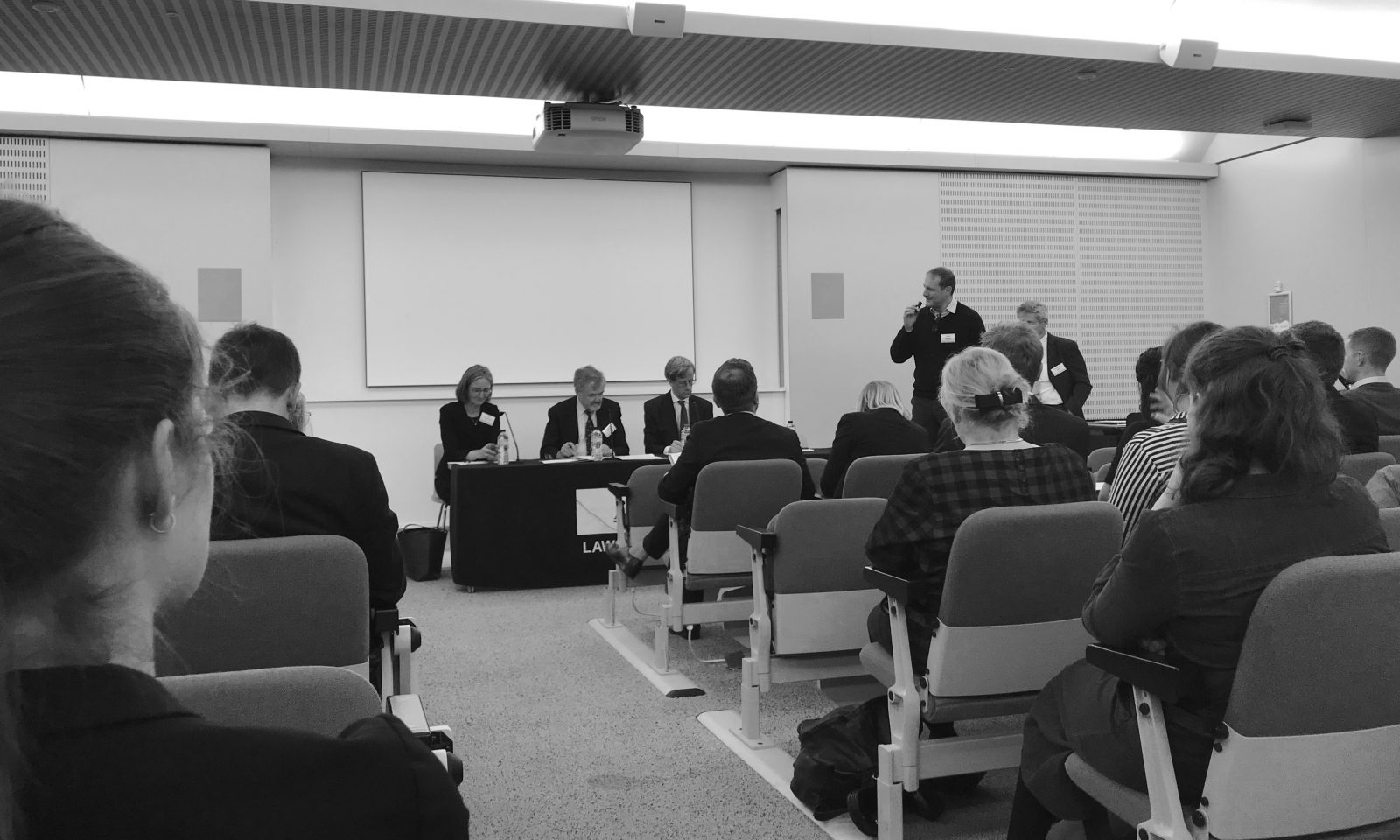Question the Trade Mark Judges
Last week, on 11 March 2020, the Institute of Brand and Innovation Law at University College London (UCL) and the European Association of Trade Mark Owners (MARQUES) organised the tenth traditional seminar Question the Trade Mark Judges where some of the most eminent trade mark judges discussed current issues in this field. There was a lot of talk about Brexit and some more procedural questions the judges are faced with in their everyday work. Intellectual Property Institute’s associate Tilen Zonta, currently studying Intellectual Property Law at Queen Mary University of London, attended the event.
An important issue that interests basically every owner of an EU trade mark conducting business in the UK is the status of his or her rights post-Brexit (learn more about this here). More specifically, the panelists were asked about the possible divergence between EU law and British law. Justice Richard Arnold explained that there will be a certain degree of continuity as the EU law has or will be largely transposed into the national legal system. After Brexit, the legislator will be free to change that and the Supreme Court will be able to depart from CJEU’s precedents. According to the Judge’s opinion this is likely to happen in cases such as Mitsubishi (C-129/17) and L’Oréal v. Bellure (C-487/07) that have been largely criticised. Emma Himsworth QC added that the UK is not completely free to go its own legislative way as it is still bound by various international obligations (such as those from the Paris Convention).
The debate then focused on bad faith in trade mark registrations. Emma Himsworth QC explained that British courts use cross-examination to prove bad faith, whereas the UKIPO, similarly to continental systems, looks into specific documents for evidence. Ian Forrester added that from his experience and the understanding of the SkyKick decision (C-371/18) bad faith is hard to prove and will normally be established only under exceptional circumstances.
Lastly, the judges discussed the importance of mediation in trade mark disputes. The panelists agreed that this alternative dispute resolution mechanism can be very useful but once the case reaches the court it is usually too late.
The Grand Board of the European Union Intellectual Property Office (EUIPO) finally ruled that the figurative sign ‘COVIDIOT’ cannot be registered as an EU trademark.
The 4th Open Knowledge Day took place on Tuesday 17 October 2023, with an accompanying workshop on 18 October 2023. This year it was organised by the Open Data and Intellectual Property Institute (ODIPI) and supported by Knowledge Rights 21 (KR21).
We invite you to the fourth Open Knowledge Day and the workshop, which will take place this year within the framework of the programme and with the support of Knowledge Rights 21. The event will bring together experts from different European countries to discuss two topics: the first part will deal with the legal basis for data analytics, which is a key part of machine learning and related artificial intelligence, and the general exception for research. In the second part, open science in theory and practice will be presented both in Slovenia and in some Western Balkan countries. Representatives of research and educational institutions from Slovenia and the Western Balkan countries, as well as interested members of the public, are invited to attend.
Dr. Maja Bogataj Jančič, a renowned expert in copyright law, has joined the Berkman Klein Center for Internet & Society at Harvard University, where she will serve as an affiliate researcher for the next two years.





